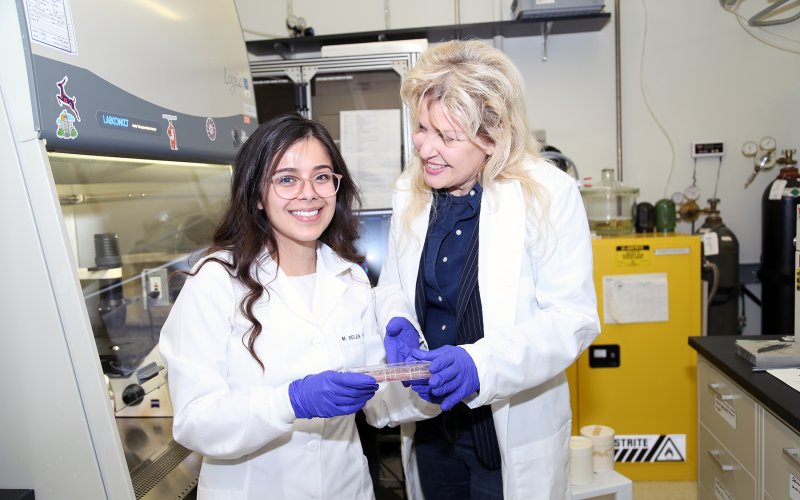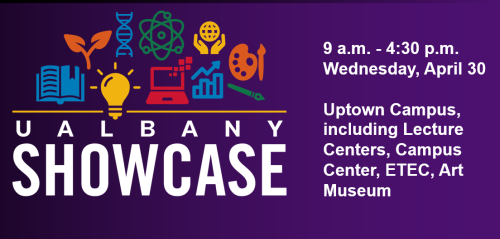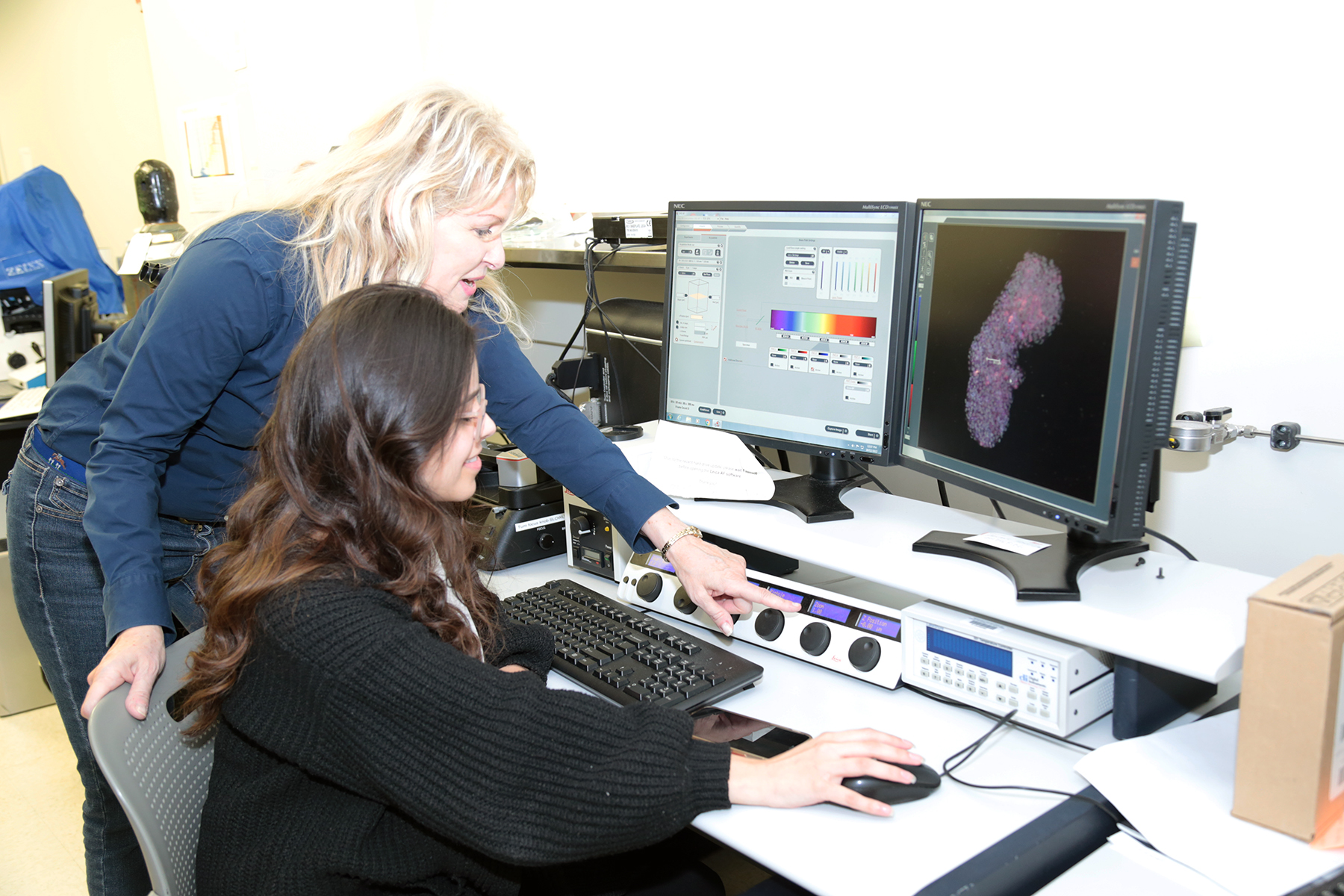Showcase 2025: CNSE Student Gains Valuable Insight into Research and Innovation

ALBANY, N.Y. (March 13, 2025) — When College of Nanotechnology, Science, and Engineering (CNSE) doctoral student Maria Paredes-Espinosa first envisioned attending graduate school in the United States, she wanted to go somewhere that matched the vision for innovation that shaped her undergraduate experience.
Paredes-Espinosa was one of the first generations of students to attend Yachay Tech University in her native Ecuador, a pioneering institution with the goal of improving her country's scientific and technological community.
"Just as Yachay Tech was created to transform Ecuador’s scientific landscape, CNSE was built with the vision of establishing a hub for innovation and cutting-edge research in nanotechnology," said Paredes-Espinosa. "Both institutions represent the belief that true progress comes from generating results, products, policies and that relies on the balance of prioritizing education, research, and knowledge creation, rather than simply relying on discoveries made elsewhere."

Paredes-Espinosa is now on track to earning her PhD in nanobioscience in 2026 under the mentorship of CNSE Associate Professor Janet Paluh. This spring, she is preparing to present her research at UAlbany Showcase on April 30, where she will take part in the annual pitch competition.
The third annual event will offer students, faculty, staff and community members the opportunity to experience all that the University offers in terms of research, scholarship, creative endeavors and experiential learning.
Her research revolves around human-induced pluripotent stem cells (hiPSCs). One of her projects involves creating miniature human hearts in a dish — a complex contractile system that replicates key and structural and functional areas of the heart, including chambers, vascular cells and innervation. The model has the benefit of offering a high-throughput alternative to traditional animal models, which often fail to translate effectively to clinical applications.
"With nearly 90 percent of promising drugs failing during human trials, better preclinical models are urgently needed," said Paredes-Espinosa, who earned a prestigious Sullivan Fellowship at CNSE in 2024. "By providing a physiologically relevant platform for drug screening and disease modeling, we hope our system has the potential to reduce reliance on animal testing and improve the success rate of clinical trials."
Her work on this project has also benefited from collaborative opportunities fostered through CATN2 initiatives. CATN2, New York State's Center for Advance Technology in Nanomaterials and Nanoelectronics at CNSE, is focused on the transition of innovation to commercial success by supporting systematic progressions in technological innovation, workforce development and business growth for partners seeking to collaborate and grow in New York. For Paredes-Espinosa, this has meant engaging with industry partners such as Cyto Cybernetics.
She's also taking part in the Research and Innovators Startup Exchange (RISE), the UAlbany Innovation Center’s new collaborative entrepreneurship pilot program aimed to take research from concept to commercialization while building a business development team. RISE also includes the National Science Foundation's Innovation Corps (I-Corps) program, which prepares scientists and engineers to extend their focus beyond the university laboratory — accelerating the economic and societal benefits of NSF-funded and other basic research projects that are ready to move toward commercialization..

"My experience at UAlbany and CNSE has given me the tools to think beyond the lab and approach research with real-world impact in mind. Through my work in Dr. Paluh’s lab, I have gained expertise in stem cell differentiation, advanced imaging, electrophysiology, and spatial RNA-seq and bioinformatics, a combination of approaches which are essential for developing and validating next-generation biological models," said Paredes-Espinosa. "Additionally, participating in the NSF I-Corps program has given me a broader perspective on translating scientific research into practical applications, helping me understand the steps needed to bridge the gap between discovery and commercialization."
Paredes-Espinosa has also been grateful for the support of Professor and Chair of Nanoscale Science and Engineering J. Andres Melendez.
"Dr. Melendez is someone who doesn’t just offer guidance when asked but actively makes sure we are included in the opportunities that matter. He has been a steady presence, always willing to help, whether with academic decisions or simply checking in to ensure we are navigating everything well," said Paredes-Espinosa. "Having people like Dr. Paluh and Dr. Melendez in my corner has made my experience at UAlbany truly meaningful."
Paredes-Espinosa's ultimate goal is take what she has learned at UAlbany to help build a future where Ecuador is helping to shape the global scientific conversation. So far, her experience at UAlbany through events like Showcase Day have reinforced her conviction to make a real-world impact.
"What stands out most about UAlbany is that it is not just a place to gain knowledge but a place where I have been encouraged to think beyond the present," said Paredes-Espinosa. "To ask bigger questions, take on new challenges and contribute to something greater than myself."




